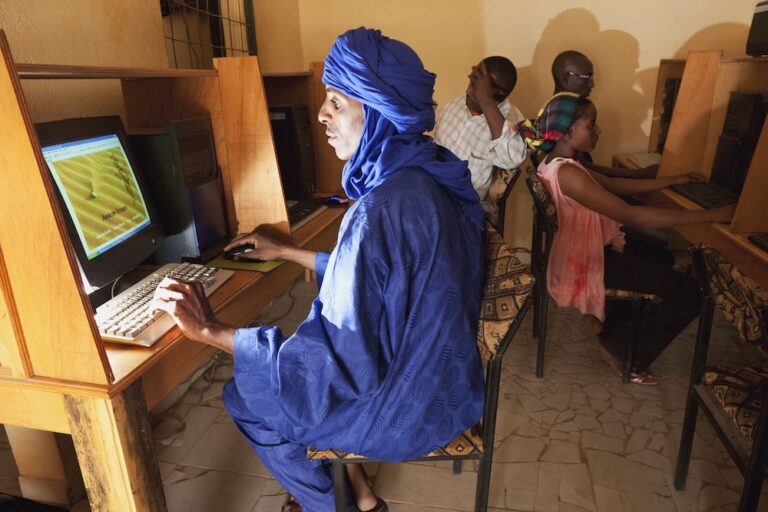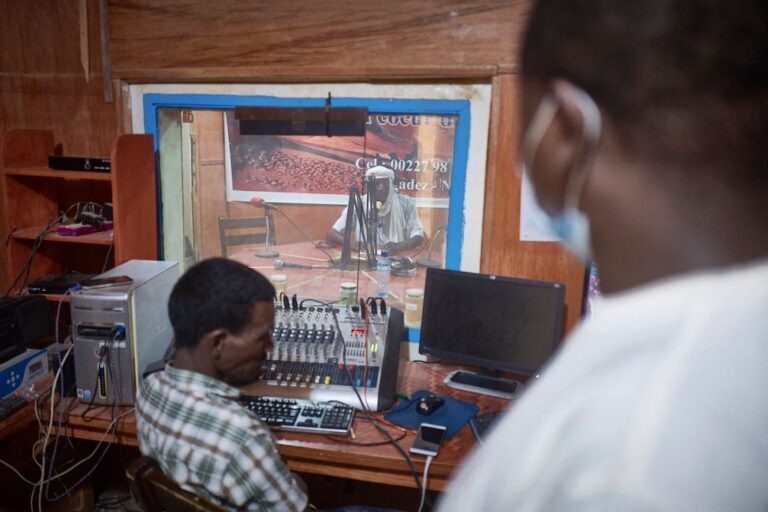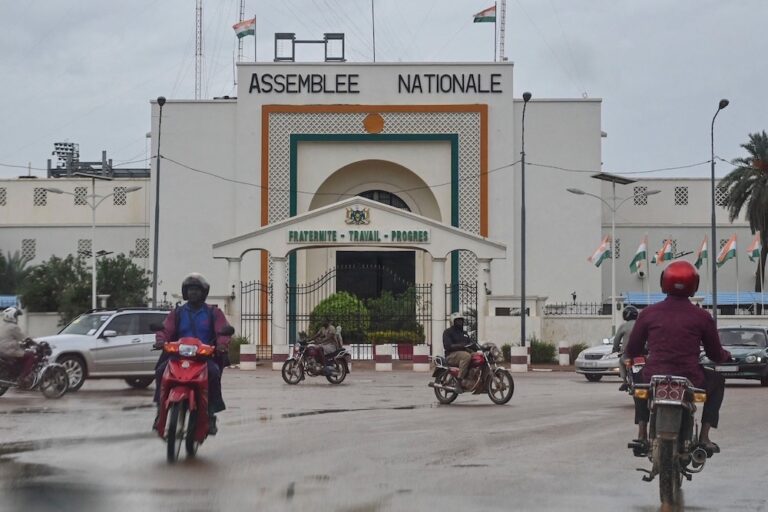(MFWA/IFEX) – Several months ago, Niger’s media sounded the alarm on the existence of famine in the country. It was the government weekly “Sahel Dimanche” which alerted the public to the existence of the famine through a feature in its issue no. 1130 of 29 April 2005. However, the country’s authorities, particularly President Tandja Mamadou, […]
(MFWA/IFEX) – Several months ago, Niger’s media sounded the alarm on the existence of famine in the country. It was the government weekly “Sahel Dimanche” which alerted the public to the existence of the famine through a feature in its issue no. 1130 of 29 April 2005. However, the country’s authorities, particularly President Tandja Mamadou, were not pleased with the paper’s publication of this issue. “Sahel Dimanche” editor-in-chief Tchirgni Maïmouna, who was responsible for the feature, was relieved of her duties and given a three-month leave.
During the same period, a special correspondent of Radio France International (RFI), Donaig Le Du, did several features in the regions of Maradi and Tahoua, the areas worst affected by the famine and where the organisation Doctors without Borders (MSF) had set up reception camps for malnourished children. Following the broadcast of her feature on RFI, the journalist came under attack by the public television, Télé Sahel. In an editorial read on the evening’s news telecast, journalist Ismaël Iboun Guèye stated that the RFI special correspondent had no other aim than to tarnish Niger’s image. He added that the journalist had never been on the ground and that she had made up the feature from her hotel room in Maradi.
Despite the determination of the authorities to deny the existence of the famine, the independent media published several articles on the issue, with photographs of starving people. Private radio stations also produced magazine programmes on the subject, allowing the stricken population to speak. Independent television TENERE also did an excellent feature on the reception site set up by MSF at Maradi and in other regions.
The independent media as a whole covered the famine and drew authorities’ attention to it. On several occasions journalists condemned the inertia and indifference of the authorities.
The media also played the role of watchdog in monitoring how regularly provisions were distributed to the stricken communities. Newspapers reported several cases of diversion of supplies by officials of the ruling regime, particularly members of the national assembly, who appropriated large quantities of provisions for their political clientele.
One denunciation gave rise to a complaint by Yahaya Yandaka, governor of Agadez region (approx. 1000 kilometres north of the capital, Niamey), against Hamed Assaleh Raliou, director of the independent radio station SAHARA FM and a regional correspondent for RFI. In a report broadcast on RFI, Raliou claimed that the governor had distributed provisions to administrative officials and traditional leaders instead of giving them to the needy populations.
On 15 July, the journalist was charged by the Agadez Regional Court. However, the judge granted him bail pending trial. The case is now before the pre-trial judge. The journalist’s lawyer remained in Agadez from 25 to 27 July to be present during the questioning of his client by the judge.


